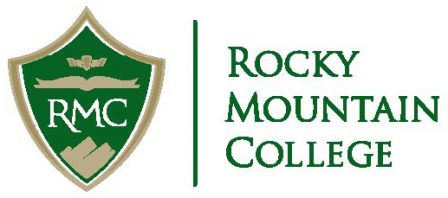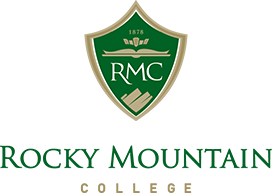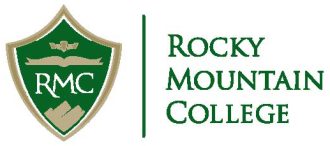Sociology
April 4, 2022 2024-04-23 22:30Sociology is the study of social phenomena, from social movements to social change. Sociology seeks to relate our individual biographies to the larger social contexts in which we live, connecting individuals to groups and social institutions. Sociologists study diverse topics such as culture, gender and sexuality, health, inequality, demographic trends, and more. At RMC, sociology pairs a traditional core of theory and methods with an array of electives — from criminology to the sociology of public health and sport — preparing students for work in a variety of fields. Students develop into strong researchers and writers, skills essential to the academic and professional workplaces.
Major Learning Outcomes
Students who graduate with a major in sociology will:
- Display evidence of a developed sociocultural imagination, that is, the ability to conceive of the connections between individuals’ behavior and the larger group(s) to which they belong;
- Demonstrate knowledge of and an aptitude with cultural diversity defined here as the array of sociocultural positions in the social world;
- Provide evidence of critical reading and analysis of important texts in the field;
- Develop and execute research papers and projects that seek to expand the sociological purview;
- Demonstrate expertise in sociology through writing.
Major in Sociology
A minimum of 33 semester hours is required, including:
MAT 210: Probability and Statistics
SOC 324: Sociocultural Theory
SOC 408: Introduction to Social Research
SOC/PSY 450: Internship (3 credits)
Choose one of the following:
SOC 101: Introduction to Sociology
SOC 225: Sociology of Public Health
Choose one of the following:
SOC 321: Criminology
SOC 353: Introduction to Social Work
Choose one of the following:
SOC 477: Sociocultural Analysis of Subcultures: Cults/Sects
SOC 490: Seminar in Sociology
Twelve credits of sociology electives. *Students who complete PSY 450 do not need to additionally take SOC 450, but must then complete 15 credits of sociology electives.
Note: Students who apply SOC 321: Criminology toward their sociology major or minor requirements may not also apply SOC 321: Criminology to meet psychology major or minor requirements.
Minor Learning Outcomes
Students who graduate with a minor in sociology will be able to:
- Describe the complex relationships between social structures and individual agency and experience;
- Explain major sociological theories and consider their empirical implications;
- Demonstrate an understanding of the complex systems of inequality impacting different social groups;
- Demonstrate expertise in sociology in writing.
Minor in Sociology
A minimum of 18 semester hours is required, including:
SOC 324: Sociocultural Theory
Six additional credits in upper-division electives
Note: Students who apply SOC 321: Criminology toward their sociology major or minor requirements may not also apply SOC 321: Criminology to meet psychology major or minor requirements.
SOC 101 – Introduction to Sociology
Semester: Fall
Semester hours: 3
Students examine the nature of the sociological perspective, macro- and micro-sociological theory, and sociological methodology and research. Society’s social organization, social structure, social interaction, socialization, social institutions, deviance and social control, social stratification, ethnic and racial minorities, gender, the family, education, religion, and other topics from a sociological perspective are also explored.
SOC 104 – First-Year Psychology/Sociology Seminar
Semester: Fall
Semester hours: 1
This seminar is intended to provide students with an in-depth orientation to the RMC psychology and/or sociology programs. It is designed to give students a general understanding of program expectations and appreciation of the value of the core educational experience at Rocky Mountain College. Students will explore ways to succeed as psychology and sociology majors, while being exposed to the variety of academic and career opportunities available to graduates with these majors. Students will begin forming professional relationships with psychology and sociology faculty, resulting in a more meaningful college experience.
SOC 201 – Social Psychology
Semester: Spring
Semester hours: 3
This course will focus on individual effect, behavior, and cognition in social environments. Topics will include conformity and obedience, aggression, prejudice and discrimination, culture, self-esteem, attitudes and persuasion, and attraction and relationships. This course is cross-listed with PSY 201.
SOC 225 – Sociology of Public Health
Semester: Spring
Semester hours: 3
This course considers public health from a sociological perspective, situating the historical and present health management challenges facing the United States population in context. It will consider the emergence of ‘public health’ as an area of popular and political interest, the reasons for health disparities across the population, and the rise and fall of various health concerns. It will address the main public health problems of the present moment, including HIV/AIDS, diabetes, obesity, heart disease, cancer, and communicable diseases. It will also focus on the sociological impetuses for various public health movements, such as the anti-vaccination trend that the U.S. is currently experiencing. Overall, the course will expose students to the complex relationship between health, healthcare, and social forces.
SOC 262 – Life and Death Decisions
Semester: Fall
Semester hours: 3
This course addresses the ethical dilemmas at the heart of beginning and ending life from a sociological perspective, considering the importance of social worth in assessing the value of life.
SOC 299 – Directed Reading
Semester: Offered at discretion of department
Semester hours: 1-3
This course allows a student to devise and pursue independent study in an area agreed upon in consultation with, and supervised by, a faculty member. Students should be either a major or minor and have a cumulative GPA of 3.00 or greater.
SOC 310 – Social Stratification
Semester: Fall; Alternate years
Semester hours: 3
Students examine the causes and consequences of the differential distribution of power, property, and prestige within social groups. Consideration is given to conservative as well as radical sociological perspectives on social stratification.
Prerequisite: SOC 101 or SOC 225
SOC 315 – Community Problems/Contemporary Issues in Psychology
Semester: Fall; Every three years
Semester hours: 3
This course provides students with the opportunity to explore issues facing modern society. Students will read and write essays on a variety of current issues, while exploring their own biases in regard to those issues.
Prerequisite: PSY 101 or SOC 101 or SOC 225
SOC 321 – Criminology
Semester: Spring; Alternate years
Semester hours: 3
This course focuses on the nature and extent of crime and delinquency, including a historical survey of explanatory theories focusing on the economic, social, and psychological causes of criminal behavior and current methods of treatment, policy, and prevention.
Prerequisite: SOC 101 or SOC 225
SOC 324 – Sociocultural Theory
Semester: Fall
Semester hours: 3
A study of the historical development of the fields of anthropology and sociology with an emphasis on the contributions of both classical and modern social theorists in the development of key concepts in the study of social and cultural behavior.
Prerequisite: SOC 101 or SOC 225
SOC 342 – Deviance
Semester: Spring; Alternate years
Semester hours: 3
This course investigates deviant (normative and statistical) social behavior. A variety of psychological, economic, sociological, and anthropological theories are used to analyze the causes, consequences, and social responses to behaviors such as sexual violence, suicide, mental illness, illegal drug use, homosexuality, and heterosexual deviance.
Prerequisite: SOC 101 or SOC 225
SOC 343 – Punishment and Society
Semester: Fall; Alternate years
Semester hours: 3
This course examines the complexities of punishment in the United States from colonial times to the present. It considers the types of behavior we punish, why we punish, how we punish, and whom we punish. Through a detailed analysis of the criminal justice system, the course evaluates the approaches of the United States to crime prevention, incarceration, and dealing with terrorism. We look at the history of punishment, study the birth of the modern prison, and consider various theories of criminology and the social nature of explanations of punishment. We then explore the massive growth of the prison population in the U.S. at the end of the twentieth century.
Prerequisite: SOC 101 or SOC 225
SOC 353 – Introduction to Social Work
Semester: Spring; Alternate years
Semester hours: 3
This course will provide the student with a general understanding of the professional field of social work and social work practice. The roles and functions of the professional social worker, as well as intervention strategies, will be addressed. The course will also acquaint students with important historical developments in, and the evolution of, social work as a profession. Students will learn from a variety of social workers from many different fields of social work.
SOC 365 – Sociology of Gender and the Family
Semester: Fall; Alternate years
Semester hours: 3
This course considers the family as a social institution in American society, paying particular attention to the relationship between the construction of gender and family formation. It will consider the family in historical perspective as well as modern incarnations of the family once seen as deviant. Particular attention will be paid to the relationship between family and health outcomes.
Prerequisite: SOC 101 or SOC 225
SOC 370 – Sociology of Sport
Semester: Spring; Alternate years
Semester hours: 3
This course explores the relationship between sport and society, analyzing the social structures, organizations, and groups involved in sport. After examining the sub-discipline of the sociology of sport, it utilizes the field of sport to conceptualize social phenomena and study social inequalities relating to race, class, gender, sexuality, and citizenship.
Prerequisite: SOC 101 or SOC 225
SOC 408 – Introduction to Social Research
Semester: Spring
Semester hours: 3
Students will complete the tasks necessary for conducting sociological research prior to the collection of data. Students will write a research proposal to include the development of a research question (hypothesis), a literature review of existing research on this topic, identification of a population for study, choice of two research methodologies for data collection, choice of analytical tools, and a statement of expected results. After successful completion of this course students will be prepared for SOC 409: Practicing Social Research.
Prerequisite: SOC 324
SOC 450 – Internship
Semester: Offered at discretion of department
Semester hours: 1-12
This course is a guided work experience in an already established place of business. The student must arrange the internship in agreement with the instructor and the Office of Career Services. The internship should relate to the student’s major or minor area of study. Contract is required. Pass/no pass grading.
Prerequisite: junior or senior standing
SOC 477 – Sociocultural Analysis of Subcultures: Cults/Sects
Semester: Spring; Alternate years
Semester hours: 3
This course uses sociology to examine a variety of historical and contemporary nontraditional groups in American society, such as the Oneida, People’s Temple, Heaven’s Gate, and Scientology. Students are expected to write a research paper using social science principles to examine a group or subculture not covered in class.
Prerequisite: one lower-division and one upper-division course in a related social science field: psychology, economics, or political science, or permission of the instructor; SOC 324 is recommended
SOC 490 – Seminar in Sociology
Semester: Spring; Alternate years
Semester hours: 3
This course enables an in-depth analysis of sociological concepts to majors. Students will engage in a large-scale research paper incorporating the application of research methods studied in Introduction to Social Research.
Prerequisite: SOC 324 or permission of the instructor
SOC 491 – Practicum in Sociology
Semester: Offered at discretion of department
Semester hours: 1-3
Students may earn course credit for field research supervised by a faculty member. For each hour of credit students are expected to spend 45 hours in the field. Students will also be asked to read relevant sociological literature related to their topic of research and submit written assignments analyzing any data collected and the research experience.
Prerequisite: SOC 101 or SOC 225 and permission of instructor
SOC 499 – Directed Reading
Semester: Offered at discretion of department
Semester hours: 1-3
This course allows a student to devise and pursue independent study in an area agreed upon in consultation with, and supervised by, a faculty member. Students should be either a major or minor and have a cumulative GPA of 3.00 or greater.
Prerequisite: junior or senior standing
- Julie Beicken, Associate Professor
Contact
Office of Student Records
Rocky Mountain College
Prescott Hall
1511 Poly Drive
Billings, MT 59102


